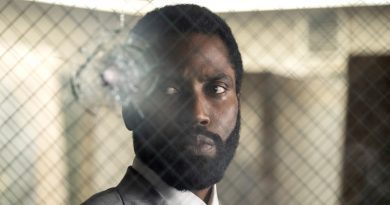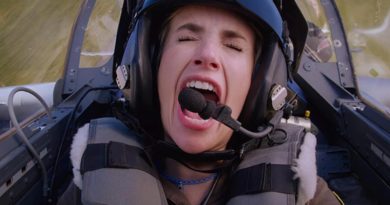Zombieland: Double Tap (2019) Review
The first Zombieland movie was no doubt a snarky, gleefully violent and well-acted zombie comedy with a gamely playful cast all around. Not to mention the 2009 surprise hit was best remembered for then-unknowns Rhett Reese and Paul Wernick’s (best known for writing Deadpool seven years later) snappy screenplay as well as Ruben Fleischer’s promising directorial debut. Even though Fleischer has gone directing high-profile pictures including Gangster Squad (2013) and Venom (2018) with varying degrees of successes, I would say Zombieland remains his best effort to date.
At the same time, Zombieland is the kind of movie that works better as a one-off. Which is why the existence of this unlikely sequel a decade later feels more like cashing-in for the nostalgia’s sake. And it turns out to be true, as the sequel — titled Zombieland: Double Tap (the subtitle actually refers to Jesse Eisenberg’s Columbus’ Rule #2 of the same name) — offers more of the same episodic-comedy storytelling beats blended with zombie genre and road movie seen in the first movie. While the familiar case of “why-mess-up-with-the-formula” does work in some sequels — unnecessary or not — if they manage to hit all the right notes, Zombieland: Double Tap is more of a hit-and-miss effort.
When we last left off, the world is still overrun by flesh-eating zombies while human survivors — including Columbus (Jesse Eisenberg), Tallahassee (Woody Harrelson), Wichita (Emma Stone) and her younger sister Little Rock (Abigail Breslin, looking all grown up since the first movie) — are still travelling as a makeshift family from one city to another. After killing some zombies, they eventually found a place to settle down in a deserted White House.
All seems to be fine until Wichita and Little Rock had enough with Columbus and Tallahassee playing house like a traditional family. So, they decided to hit the road on their own by stealing Tallahassee’s beloved armoured vehicle. From there, we learn that Columbus is heartbroken over his girlfriend Wichita leaving him all of the sudden.
Then something happens: Little Rock goes missing and left Wichita to join a guitar-loving pacifist Berkeley (Avan Jogia) on a ride. Wichita, of course, eventually reunites with Columbus and Tallahassee to locate the missing Little Rock.

Zombieland: Double Tap does introduce a few new characters including Zoey Deutch’s sometimes annoying, though adorable dumb-blonde role as Madison. Rosario Dawson shows up in a typically feisty and tough-as-nails role as the manager of an Elvis-themed motel. Then, there are Luke Wilson’s Albuquerque and Thomas Middleditch’s Flagstaff — both of which carry the respective doppelgangers roles of Tallahassee and Columbus. While their appearances might sound like a good idea for comedy-gold moments, they serve more of an unnecessary filler who quickly overstay their welcomes. Finally, Avan Jogia looks the part playing a laidback hippie role, albeit there’s nothing much worth writing home about him.
Despite Rhett Reese and Paul Wernick returning to contribute the screenplay alongside franchise newcomer Dave Callaham, the plot only manage to score a few decent laughs this time around. Other times, the jokes tend to sound forceful or trying too hard to be funny.
But what bothers me the most is the lack of personal growth between the four recurring characters, especially given its ten years’ gap since the first movie. Don’t get me wrong. I do enjoy how natural their lived-in chemistry turned out to be. And yet, their reunion is more of a fan service than something that truly justified their return to the sequel. Even with the so-called added conflicts of Little Rock turning into a rebellious teenager and Wichita getting cold feet after finding herself too emotionally attached with Columbus, the movie chose to gloss them over with superficial storytelling approach.
While some of the shortcomings made Zombieland: Double Tap feels like a huge missed opportunity, the sequel does have its fair share of moments. Other than the aforementioned wonderful chemistry between the four returning characters, some of Fleischer’s flashy direction deserve praises. This includes the quirky slo-mo opening montage of the four returning characters killing zombies in an open field to the loud headbangin’ tune of Metallica’s “Master of Puppets”; Columbus’ voiceover narration involving name-dropping different types of zombies from various pop-culture references; and a brief but hugely amusing gag during the opening logo of Columbia Pictures.
There’s another noteworthy moment, which takes place in the Elvis-themed motel involving Columbus and his gang battling against a pair of hard-to-kill zombies — all brilliantly put together in an extended, well-choreographed single-take sequence.
With a bigger budget this time around, the sequel’s overall technical craft from its elaborate make-up to the gore and graphic violence are all top-notch.
Like the first movie, don’t leave your seat just yet since there will be not only one but two extra scenes involving a certain cameo appearance in both mid-credits and post-credits.





